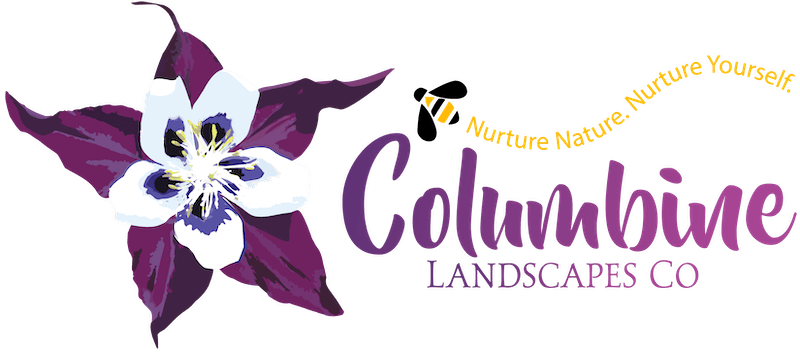17 Nov A Natural Solution to Prevent the Need for Herbicides & Pesticides
In today’s world, where environmental concerns are paramount, there is a growing awareness of the adverse impacts of herbicides and pesticides on ecosystems. However, maintaining a beautiful and healthy landscape doesn’t have to rely on chemical interventions. By creating habitat in your home landscape, you can foster a balanced ecosystem that naturally controls pests, reduces the need for herbicides and pesticides, and promotes biodiversity. It’s a win-win-win-win-win…
Let’s explore how taking simple steps to incorporate habitat elements into your outdoor space can transform it into a thriving and sustainable haven where nature takes care of itself so you don’t have to.
1. Embrace Native Plants:
One of the most effective steps in creating a habitat is to incorporate native plants into your landscape. Native plants have coevolved with local wildlife, providing essential food and shelter. These resilient plants require less maintenance and are adapted to the local climate, reducing the need for chemical inputs. As native plants flourish, they attract a diverse array of beneficial insects, birds, and other wildlife that act as natural pest controllers.
2. Support Pollinators:
Pollinators play a crucial role in the ecosystem by facilitating the reproduction of plants. By providing a variety of flowering plants that bloom throughout the seasons, you can attract bees, butterflies, and other pollinators. These insects not only enhance the beauty of your landscape but also contribute to the pollination of fruits, vegetables, and other flowering plants. Encouraging pollinators to thrive in your garden helps maintain a healthy ecosystem while reducing the reliance on chemical pesticides. Delve further into this topic in last month’s blog article: How to Create Habitat for Pollinators in Your Landscape
3. Create Water Features:
Incorporating water features, such as ponds, birdbaths, or even small water containers, can greatly enhance the habitat value of your landscape. Water sources attract various species of birds, amphibians, and beneficial insects, which contribute to pest control naturally. Frogs and toads, for example, feed on insects, including pests like mosquitoes. By providing a water feature, you create a self-sustaining ecosystem that supports the balance of predator-prey relationships.
4. Build Shelter and Nesting Sites:
Adding shelter elements to your landscape, such as birdhouses, bat boxes, and rock piles, can create safe havens for wildlife. Birds and bats, in particular, are voracious consumers of insects, including harmful pests. By encouraging these natural predators to take up residence in your landscape, you can reduce the need for chemical pesticides. Additionally, leaving a dead tree, fallen leaves and plant debris as mulch provides hiding places for beneficial insects while enriching the soil naturally.
5. Practice Integrated Pest Management (IPM):
Integrated Pest Management is an approach that focuses on prevention and relies on natural controls rather than chemicals. By employing IPM strategies, such as plant diversity, proper watering techniques, and regular monitoring, you can identify and address pest issues early on. Beneficial insects and birds attracted to your habitat will naturally help control pest populations. When necessary, targeted interventions like handpicking pests or using organic pest control methods can be employed as a last resort.
Creating habitat in your home landscape is a rewarding and environmentally friendly way to establish a balanced ecosystem that minimizes the need for herbicides and pesticides. By embracing the above practices, you can foster a self-sustaining environment that benefits both your garden and the wider ecosystem. There’s no time like the present to take proactive steps to create harmonious landscapes that promote biodiversity, conserve resources, and reduce the reliance on harmful chemicals. And our dedicated readers know that the tenets of Biophilia have proven to show that by nurturing nature we nurture ourselves.
To the Glory of the Garden,
Eva Montane
President, Columbine Landscapes

Sorry, the comment form is closed at this time.